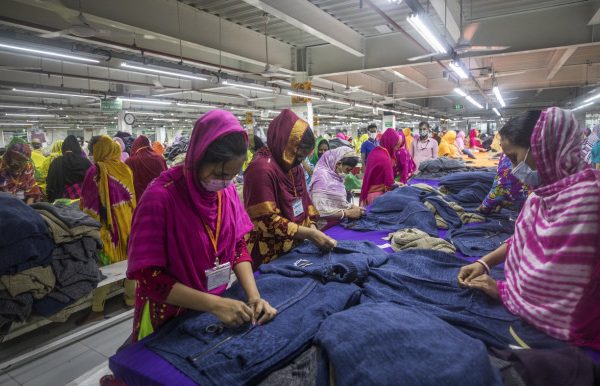50,000 Beximco workers lose jobs, living in misery
- Update Time : Tuesday, December 24, 2024
- 43 Time View

This abrupt job loss has not only affected the workers but also the local communities
DTS Desk
The sudden closure of Beximco Group’s factories has plunged approximately 50,000 workers into unemployment, leaving them in dire straits. This abrupt job loss has not only affected the workers but also the local landlords, service providers, and shopkeepers who depended on their patronage.
In the Mamun Nagar area of Gazipur, the impact is palpable. Mala Rani, a widow and mother of two, is among those struggling to make ends meet. After her husband’s untimely death, she moved to Dhaka and secured employment at one of Beximco’s factories. With the factory’s closure, she now faces unemployment, unable to provide for her children or pay rent. Tears streaming down her face, she laments, “I lost my husband prematurely. Now, with two children to care for, I came to Dhaka with dreams of educating them. The factory closed two months ago. No job, no salary, and shopkeepers refuse to give credit. The landlord demands rent daily.”
This sentiment echoes throughout the community, where 40,000 to 50,000 people have been affected. Many have already returned to their hometowns after futile attempts to find new employment. In one tin-shed house with 13 rooms, nine are now locked, their occupants former Beximco employees who have left the area.
Local businesses are also suffering. Farida Parveen, a grocery store owner, says, “With Beximco closed, we’re in trouble too. Many have left, and those who remain can’t pay their dues. I can’t restock my shop.” Street vendors like Omar Faruk, who sold snacks in the area, report a significant drop in customers, stating, “Eighty percent of the workers have gone back to their villages. There are no people in the neighborhood. Our sales spots are gone.”
Landlords, such as Mostafa Kamal, express concern over the exodus of tenants. “Many have left. Others are worried whether the factory will reopen. If not, they will leave too. We’re anxious—if the factory doesn’t reopen, tenants will go. Some run their households solely on rental income,” he explains.
Former Beximco garment worker Nazmul feels betrayed, saying, “We considered the factory as family and worked to ensure its success. Owners can run large factories because of our trust. Through the factory, their situation improves, but they don’t think about us. We can’t even get our provident fund money. If we had that, we could do something back in the village.”
The recent change in government has dealt a significant blow to the ready-made garment sector. Beximco Group has laid off nearly 40,000 workers across 15 apparel units, citing a lack of work orders for its export-oriented garment and textile factories in Gazipur. Workers claim that even when orders were available, management declined them, leading to the shutdown. A notice issued on December 15 informed all employees that layoffs would take effect starting December 16.
Osman Kaiser Chowdhury, Director of Finance and Corporate Affairs at Beximco, stated that the inability to open letters of credit for raw material imports has halted production.
Syed Sultan Uddin Ahmed, Executive Director of the Bangladesh Institute of Labour Studies (BILS), emphasized that a functioning establishment should not be shut down. He suggests appointing an administrator or management team to keep operations running. If closure is unavoidable, all assets should be liquidated to pay workers their dues. Additionally, efforts should be made to arrange alternative employment for the affected workers. Ahmed stresses the importance of keeping business separate from politics to prevent such crises from impacting workers and the general populace.
Beximco Group’s 15 factories include Shinepukur Garments, Urban Fashions, Yellow Apparels, Prefix Fashions, RR Washing, Beximco Fashions, Beximco Garments, New Dhaka Industries, International Knitwear and Apparels, Assex Fashions, Escorp Apparels, Crescent Fashion and Design, and Crescent Accessories Limited.
Source: Kaler Kantho
























